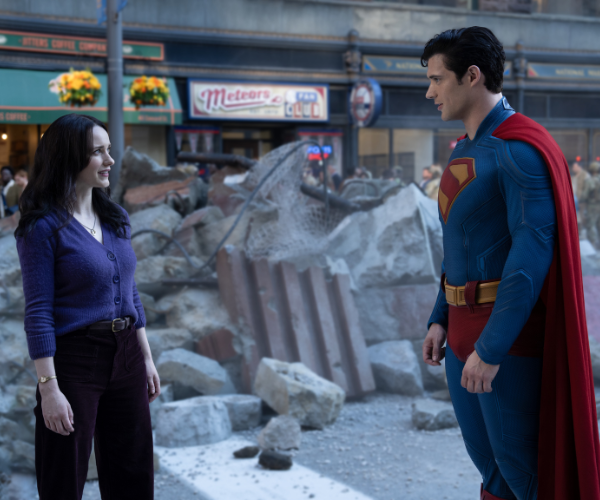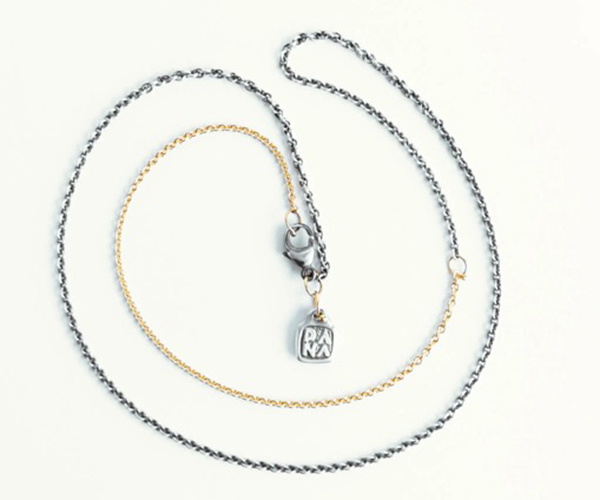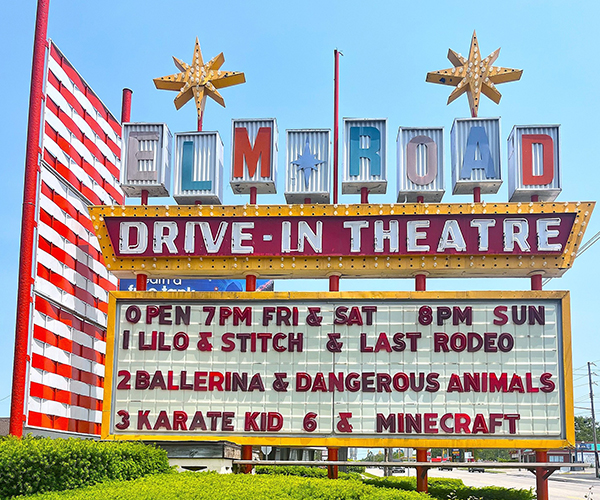This year’s 44th fest has gotten a socially distant makeover because of the coronavirus outbreak, which led to the festival’s cancellation in late March.
Reborn under the CIFF44 Reinvented moniker, the city’s now-virtual film festival launches its CIFF Streams today, allowing cinephiles across The Land to watch hundreds of feature-length and short-film selections from the 44th festival’s originally planned schedule.
Running until 11:59 p.m. on April 28, CIFF Streams offers tickets to individual films for $8, or Film Buff memberships for $75, which allows viewers to stream all of this year’s content with a provided login. Current members will also be given log-in credentials.
To prep for this most highbrow of binges, here are 10 of our most anticipated films available on CIFF44 Streams. These features are available today, and the festival will be dropping additional films as the week progresses. So, hand your ticket to your cat and curl up in the theater of your own home — it’s this year’s best seat in the house.
Anbessa
Ten-year-old Asalif lives with his mother in the farmlands on the outskirts of Addis Ababa, Ethiopia’s capital and largest city. But as the metropolis continues to sprawl outwards, new apartment complexes and the stretching hand of the city are slowly forcing farmers to leave their homes in the surrounding areas. Forging a playground in an increasingly liminal space, Asalif imagines himself as “Anbessa,” (meaning “lion” in Amharic), a king of the jungle who battles not just ferocious beasts, but often, the encroaching developments threatening his home. A lyrical, poignant documentary, Anbessa captures a child creating a world of his own, as the one around him slowly disappears.
The Archivettes
Nestled in an unassuming brownstone in Brooklyn, New York, is the world’s largest collection of materials by and about lesbians. Founded in 1974, the Lesbian Herstory Archives is a pioneering museum, archive and community meeting place dedicated to preserving the stories of Lesbians worldwide, a haven where many come to discover the forebearers of a movement and themselves. But as its founders reach their 70s, they’re looking to pass the torch, creating spaces in the archive’s records for the tales of younger generations, such as Ellie Conant, a groundbreaking NYC lesbian party promoter who died at 36 from lymphoma. Directed by West Side native Megan Rossman, this warm documentary is a love letter to a movement, and an urgent prayer for its continued evolution.
Beanpole
One of the buzziest films on this year’s roster comes courtesy this bracing, gorgeous tale set in post-war Leningrad, which won the Un Certain Regard Best Director Award at the Cannes Film Festival. Iya, or “Beanpole,” is a meek, tender-hearted nurse navigating the bleak aftermath of one of World War II’s most brutal sieges. Soon, her PTSD leads to strange, dissociative fits that freeze her to the floor and cause a shocking, accidental tragedy. Unmoored, she reconnects with her wry, fearless wartime confidante Masha. The two fill each other like lost halves, careening between violence, tenderness, unnerving encounters and bone-deep devotion. Shocked by striking, rich tableaus amid austere shots of post-war Russia’s brutalist architecture, Beanpole is a raw-nerve, compassionate portrait of a search for life in a place torn adrift by trauma.
Elephant Refugees
After Botswana outlawed elephant poaching in 2014, miraculously, the news somehow spread among the African herds, who began epic migrations to the country’s new safe zone. Today, Botswana hosts 60% of the world’s elephant population, some of whom reside at Elephant Sands, a family-owned bush lodge in Nata. There, this documentary captures the devastating environmental obstacles caused by this abrupt migration, which has placed intense demands on an ecosystem already reeling from unprecedented drought and climate change. The devoted Moller family struggle to provide water to as many as 500 elephants a day, as resources run scarce, and environmental and political pressures intensify. As of 2019, the ban on elephant hunting was lifted in Botswana, lending this film a heartrending perspective on the gulf between reality and good intentions.
HEROINOHIO
In 2017, Ohio remained firmly at the front lines of the opioid epidemic, reporting the nation’s second-highest number of overdose deaths involving the substances. In Springfield, brothers, community organizers and recovering addicts Mike and Chuck Rollins lead their nonprofit Gemini Reliance to transform abandoned and dilapidated area homes into safe, sober living spaces for those recovering from addiction. But what started as a portrait of the duo’s groundbreaking community efforts is staggeringly transformed when tragedy strikes, leaving one man to grapple with sobriety on harrowing terrain.
Marona’s Fantastic Tale
A dazzling animated adventure, Marona’s Fantastic Tale is both a thrilling artistic achievement and a dreamy, poignant tale of one dog’s deep impact. After an accident, wandering Labrador Marona reflects on her life thus far, recounting in vibrant, often-fantastical detail the many names, owners and passions she’s found in her Parisian life. From street performer to guard dog, Marona’s world expands with each new, expressionistic encounter, as a once-abandoned puppy learns to dream, love and change an uncertain world.
Martha: A Picture Story
Few know the name of Martha Cooper, though countless continue to marvel at the street art her photography helped elevate and memorialize. First taking up her camera amidst New York’s brutal 1970s crackdown on graffiti, the implacable, fearless Cooper began capturing the city’s vibrant street art and culture everywhere and anywhere, at a time when mainstream art and publishing institutions still derided and marginalized the artform. The first female photographer at the New York Post, Cooper went on to publish 1984’s now-iconic Subway Art, a book which captured the city’s groundbreaking, ephemeral graffiti before it was washed away — and influenced a generation of developing visionaries in the process. A loving tribute to an underappreciated hero now navigating a rapidly changing, and hugely profitable, street art culture she helped launch, this documentary finally turns the camera on a true champion of unbridled creativity.
Playing With Fire: Jeannette Sorrell and the Mysteries of Conducting
Even those who have heard the transportive strings of Cleveland’s Grammy-winning Apollo’s Fire may not know the obstacles faced by the woman who created it. Throughout an accomplished, decadeslong career, the baroque orchestra’s founder and conductor has frequently encountered sexist obstruction in her career, from early instructors to bastions of the classical music landscape. Sorrell had built a reputation as a thrilling harpsichordist and was one of the youngest students ever accepted into the conducting programs at the Aspen and Tanglewood Music Festivals. Yet, despite being recommended for the position, she was once refused an audition for the Cleveland’s Orchestra assistant conductor role — because she was a woman. In this intimate, behind-the-scenes documentary from Oscar winner Allan Miller, viewers follow Sorrell as she forges her own flame with Apollo’s Fire, leading rehearsals, reflecting on her own career and teaching the conducting stars of the next generation as she creates a classical landscape all her own.
White Riot
A potent, timely look at the rise of the British white supremacist group the National Front, White Riot is almost two documentaries in one. While examining the disturbing political and economic factors that led to the emergence of the hate group, this taut film also charts the response of one activist, photographer Red Saunders, who founded the group Rock Against Racism, after hearing xenophobic slurs at an Eric Clapton concert. Through diverse concerts and cultural event staged throughout the UK, Saunders hoped to unite a wave of British citizens through their rejection of hate — and love for punk rock.
Young Ahmed
The latest from the revered, often controversial directors Luc and Jean-Pierre Dardenne, Young Ahmed is a characteristically challenging view. Winning the brothers the Best Director award at the Cannes Film Festival, this naturalistic drama incited early condemnations when its premise was revealed: a young Muslim boy in Belgium, conflicted and under the influence of a fanatical imam, commits a shocking act of violence against his schoolteacher. But though flawed, the film finds nuance, if not total clarity, in the many roles Ahmed finds himself struggling to navigate, especially after he is sent to a youth detention facility in an attempt at reform. Steering clear of caricature, it’s a meditative examination of the many contradictions he finds himself ensnared in, imposed by his family, his school, his community and himself, inviting the audience to consider what options society presents for a boy like Ahmed.




